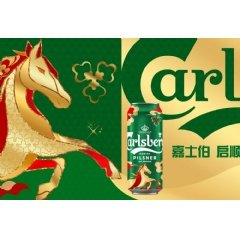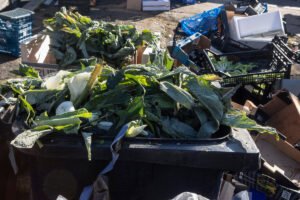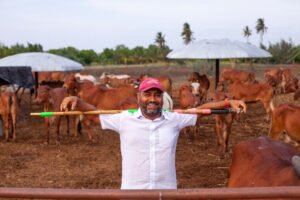Wednesday, 18 February 2026
No Egg-scuse for caged eggs
To meet this increasing demand, egg producers across Asia are transitioning from cage to cage-free production Key trends to look out for in the sustainability sector in 2021 Covid-19 has…

To meet this increasing demand, egg producers across Asia are transitioning from cage to cage-free production
Key trends to look out for in the sustainability sector in 2021
Covid-19 has led to increased consumer concern and curiosity about where their food comes from and how it is produced, and the pandemic has highlighted the link between public health and animal health and welfare. This has led food businesses to take a careful look at their supply chains and prioritize certain responsible sourcing and sustainability issues, including animal welfare, local sourcing, traceability, and transparency. Increased commitment to these issues will continue into 2021, and in order to build and maintain consumer trust, brands will focus more on storytelling and narrating how they are positively impacting animals, local communities, and the environment through their supply chain decisions and commitments.
Brands will reinforce brand purpose which presents an opportunity for these companies to build more differentiated, authentic and profitable relationships with their consumers. Storytelling by these brands will attract consumers who feel that the brand purpose aligns with their beliefs.
A priority responsible sourcing issue for the global food industry in the past decade has been animal welfare, especially the sourcing of cage-free eggs. This issue has gained significant momentum in recent years in Asia, including in 2020. There has been increasing demand for cage-free eggs, both by individual consumers and large institutional buyers in the region, as consumers pay closer attention to how animals are treated in food production.
Despite COVID-19, this year major multinational corporations have extended their cage-free commitments to Asia, and new Asian businesses have announced cage-free pledges:
- Metro Group—one of the largest retailers in the world- announced a commitment to source exclusively cage-free shell eggs in India, China, and Japan
- Burger King committed to cage-free in Thailand and Indonesia
- Asia-based hospitality groups announced cage-free policies, including Minor Hotels, Honking and Shanghai Hotels Langham Hospitality Group, and Mandarin Oriental Hotel Group
- Grupo Pão de Açúcar—Brazil’s leading retailer—committed to only selling cage-free eggs
- Melia Hotels International, Spain’s leading hotel group, with operations across Asia, committed to source exclusively cage-free eggs globally
- Restaurant Brands International (Burger King, Tim Hortons, and Popeyes) became the first major restaurant group to announce a global cage-free egg commitment
To meet this increasing demand, egg producers across Asia are transitioning from cage to cage-free production, and cage-free producers are expanding their existing cage-free egg offerings. Thailand’s CP Foods, Asia’s leading egg producer and one of the world’s leading producers, announced it will double its cage-free production by the end of this year. Other producers of all sizes across Asia are also investing in cage-free production systems to take advantage of this market opportunity.
In 2021 we’ll see an even greater focus on sustainability and responsible sourcing, including meeting animal welfare and cage-free egg targets. More and more food businesses in Asia will join the global cage-free egg movement in 2021, pledging to transition their egg supply chains to 100% cage-free, and brands that already have cage-free commitments will focus on implementation. Food and hospitality businesses are already working to fulfil their cage-free commitments around the world, and we will see this increased focus in 2021, especially across Asia, as businesses work to meet their 2025 deadlines. A key component to this will be a collaboration between food businesses, their egg suppliers and producers and cage-free production experts, to provide the support that producers need to carry out a successful transition from cage to cage-free housing systems.
Global Food Partners will continue its work with the egg industry across Asia to train egg producers through its virtual and on-farm training programs, Impact Incentives and Partnership programs, and one-on-one consulting for egg farmers and food businesses to implement cage-free policies and production practices.
Insights on upcoming possibilities for the cage-free sphere in 2021 in India
India is the world’s 3rd largest egg producer. While the vast majority of layers are housed in battery cages, cage-free farming is emerging in India. The High Court of Delhi has prohibited the establishment of new battery cage facilities, as they violate the Prevention of Cruelty to Animals Act, and the government is working on a phase-out for existing caged farms and to ensure appropriate space allowance. In recent months there has been a push from the government to support free-range egg production in the country. The cage-free egg players estimate a year-on-year growth of 20% in cage-free eggs.
Elissa Lane, Co-Founder and CEO, Global Food Partners, Singapore
Technology
Carlsberg Launches AI-Crafted Lunar New Year Packaging
Feb 17, 2026 | Beverages
FAO Experts Assess Risk of Antimicrobial Resistance Spreading via Food Loss and Waste
Feb 17, 2026 | Sustainability
Food Testing
Redefining Trust in Organic Foods through Independent Testing
Feb 13, 2026 | Food Safety and Testing
AFNOR International Eyes Global Food Safety Growth with HACCP Group Takeover
Feb 04, 2026 | Australia
More Popular
Hormel Foods Announces Agreement to Sell Whole-Bird Turkey Business to Life-Science Innovations
Feb 18, 2026 | Company News
Kodiak Expands Frozen Lineup with No Sugar Added Homestyle Power Waffles
Feb 18, 2026 | Company News






